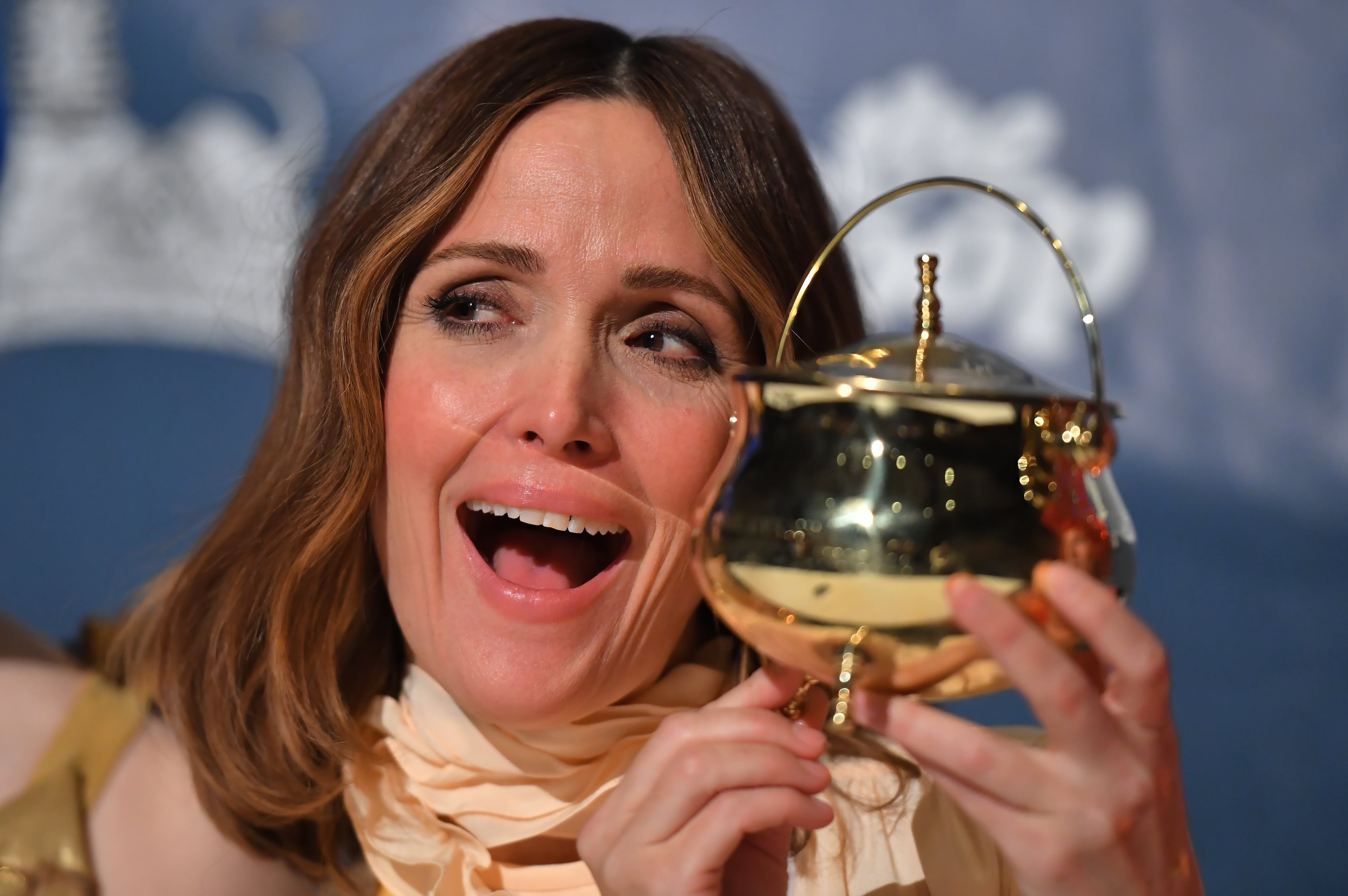Review: ‘Babble Lab’ breaks up narrative to make tantalizing alphabet soup

This story was originally published by ArtsATL.
Whoever said that spectacle and depth are mutually exclusive must not have seen Autumn Ness’ “Babble Lab.” A symphony for the senses that embraces childlike glee and the wonders of discovery, this world premiere is a coproduction between the Alliance Theatre and Minneapolis’ Children’s Theatre Company, running through July 28. Performed by Ness herself, it is sure to dazzle children while fascinating adults and encouraging in all a sense of curiosity and play.
The plot is nearly impossible to describe. Ness, the show’s only actor, portrays a highly inquisitive scientist who comes onstage to conduct a series of experiments, the purposes to which the audience is not privy. There is no dialogue per se, though Ness speaks in a babbling language that cannot be understood (nor is it meant to be).
After throwing a series of items into what looks like a Crock-Pot, Ness accidentally creates small letters that she proceeds to eat, allowing her to make the sound that letter makes. Soon the letters come to life and begin harassing the scientist, initiating a baffling — and at times moving — back and forth that drives the rest of the play.

But the plot is really not the thing here. What matters is the imagination on display, both on behalf of playwright Ness and the brilliant design team. Ness’ script is inventive and at times hilarious, and the technical skill required to bring her wild concept to life is top notch. The letters are mostly represented by projections — designed by Jorge Cousineau and Craig Gottschalk — and while “Babble Lab” is technically a one-woman show, the letters are brought to life with so much personality that they are essentially a second character. There is an almost balletic quality to the movements, and the visual feast that they provide is one of the production’s biggest draws.
If there is a third character, it is the sound design. Sound designer Katharine Horowitz provides “Looney Tunes”-esque sound effects to punctuate the show’s physical comedy and devises unique vocalizations to give character to the letters. Meanwhile, composer Victor Zupanc’s score gives weight to the more emotional beats, heightening the audience’s sense of awe and wonder as the scientist explores the different facets of sound. Between the two of them, they create a sonic landscape that is textured and immersive.
The actual goings-on of the play are largely slapstick in nature, which is sure to amuse the children this show aims to engage. However, there is a distinct underlying intellectualism as well. Ness says in the program notes that she is inspired by Dadaism — a 20th century artistic movement that focused on pure, at times nonsensical, sensory experiences over logic and cohesive narrative. As such, the scientist’s exploration of language is less about learning to combine the letters into words and more about the visual and aural qualities of the letters.
The title is also a clear reference to the Tower of Babel, a reference that is bound to be lost on the kids but that highlights the overall theme of the play: learning. The scientist learns about language the same way children do — through repetition of sounds. Children do not assign meaning to words until they are older, instead reveling in the sensations, the way words feel in their mouths, the shape and timbre of them. Hence, they babble, but, in doing so, they learn.

These influences speak to the nuance and intelligence of Ness’ writing, but we must also acknowledge her skill as a performer. She displays a keen understanding of how to perform for children, heightening all of her expressions to convey wonder, curiosity, frustration and surprise, all without speaking an intelligible word. She acknowledges the audience but is so deeply immersed in what is happening onstage that it makes the audience feel like they are part of the experience. She also displays impeccable comedic timing, bolstered by Sarah Agnew’s astute direction.
There is an admirable precision to the staging, as Ness must be in exactly the right spot for her interactions with the projections to read correctly. It is something that simply would not work in a larger space, but, in the intimate space of the Hertz Theatre, it only amplifies the immersive nature of the production.
It’s rare to see a production where narrative takes a back seat to spectacle in a way that is so rewarding or stimulating. Certainly, as a children’s production, “Babble Lab’s” value is aimed at younger audiences, but I have no doubt that an older audience will find plenty to enjoy in Ness’ work. It’s a show about creation in its purest form — sensorial, immediate, playful, curiosity-driven and, most importantly, fun.
THEATER REVIEW
“Babble Lab”
Through July 28 at Alliance Theatre. Adults, $20; children, $10. 1280 Peachtree St. NE, Atlanta. 404-733-4600. alliancetheatre.org.
::
Luke Evans is an Atlanta-based writer, critic and dramaturge. He covers theater for ArtsATL and Broadway World Atlanta and has worked with theaters such as the Alliance, Actor’s Express, Out Front Theatre and Woodstock Arts. He’s a graduate of Oglethorpe University, where he earned his bachelor’s degree, and the University of Houston, where he earned his master’s.

MEET OUR PARTNER
ArtsATL (artsatl.org) is a nonprofit organization that plays a critical role in educating and informing audiences about metro Atlanta’s arts and culture. ArtsATL, founded in 2009, helps build a sustainable arts community contributing to the economic and cultural health of the city.
If you have any questions about this partnership or others, please contact Senior Manager of Partnerships Nicole Williams at nicole.williams@ajc.com.


